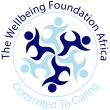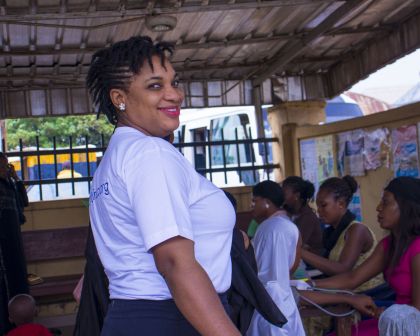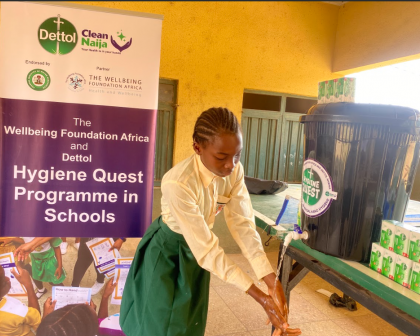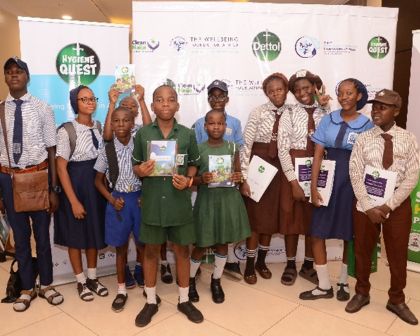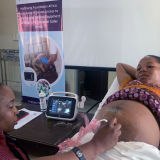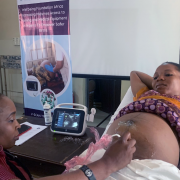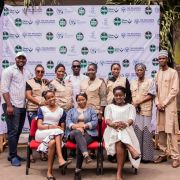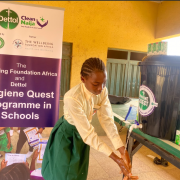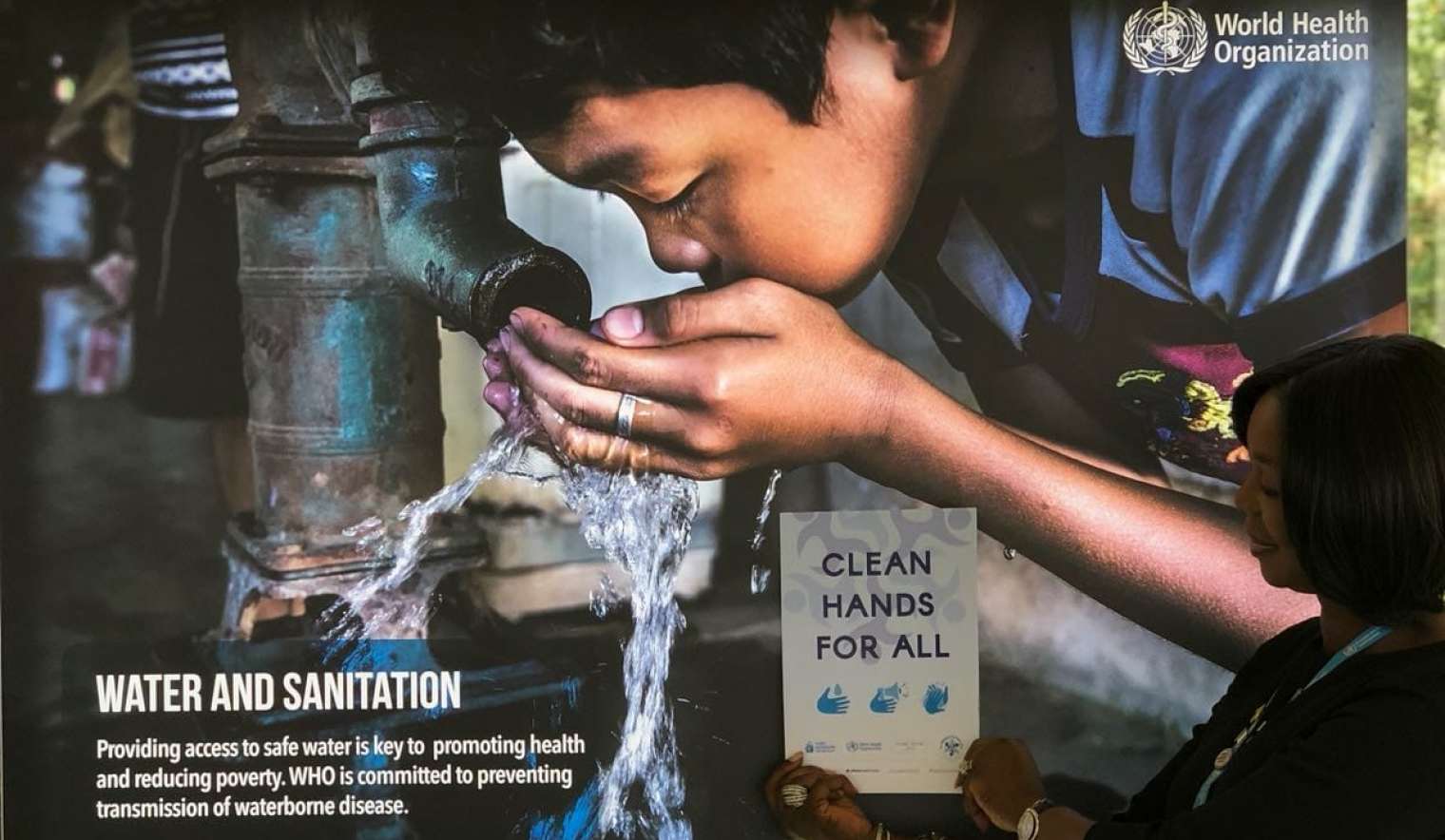
The Wellbeing Foundation Africa and its Founder-President, Mrs Toyin Ojora Saraki, welcome the adoption of Resolution EB144/CONF./2 Rev.1: Water, sanitation and hygiene in health care facilities at the 144th World Health Organization Board Meetings
The resolution recognises that Primary Health Care is a cornerstone of a sustainable health system for effective universal health coverage and notes that improving safe drinking water, sanitation facilities, health care waste management and hygiene practices is key to a successful Primary Health Care system. The resolution rightly urges Member States:
- to conduct comprehensive assessments according to the national context and, where appropriate, to quantify the availability, quality and needs of safe water, sanitation and hygiene (WASH) in health care facilities and infection prevention and control (IPC) status using existing regional and global protocols or tools1,2 and in collaboration with the global effort to improve WASH in health care facilities;3
- to develop and implement a road map according to national context so that every health care facility in every setting has, commensurate with its needs, safely managed and reliable water supplies; sufficient, safely managed and accessible toilets or latrines for patients, caregivers and staff of all sexes, ages and abilities; appropriate core components of infection prevention and control (IPC) programmes including good hand hygiene infrastructure and practices; routine, effective cleaning; and safe waste management systems, including for excreta and medical waste disposal and whenever possible sustainable and clean energy;
- to establish and implement, according to national context, minimum standards for safe water, sanitation and hygiene (WASH) and infection prevention and control (IPC) in all health care settings and build WASH and IPC standards into accreditation and regulation systems; and establish accountability mechanisms to reinforce standards and practice;
- to set targets within health policies and integrate indicators for safe water, sanitation and hygiene (WASH) and infection prevention and control (IPC)4 into national monitoring mechanisms to establish baselines, track progress and track health system performance on a regular basis;
- to integrate safe water, sanitation and hygiene (WASH) into health programming, including into nutrition, maternal, child and newborn health within the context of safe, quality integrated people-centred health services, effective universal health coverage, infection prevention and control (IPC) and antimicrobial resistance;
- to identify and to address inequities and interruptions in the availability of adequate safe water, sanitation and hygiene (WASH) services in health facilities, especially in facilities that provide maternity services and in primary health care facilities;
- to align their strategies and approaches with the global safe water, sanitation and hygiene (WASH) in health care facilities effort5 and contribute to the realization of Sustainable Development Goal 3 (Ensure healthy lives and promote health and well-being
- to have procedures and funding in place to operate and maintain safe water, sanitation and hygiene (WASH) and infection prevention and control (IPC) services in health facilities and to make continuous upgrades and improvements based on needs so that infrastructure continues to operate and resources are made available to help facilities access other sources of safe water in the event of failures in the normal water supply, so that environmental and other impacts are minimized and in order to maintain hygiene practices;
- to educate and raise awareness, in line with regional agreements, on water, sanitation and hygiene, with a particular focus on maternity, hospital facilities, and settings used by mothers and children; and to conduct ongoing education campaigns on the risks of poor sanitation, including open defecation, to discourage this practice, and encourage community support for use of toilets and safe management of faecal waste by health workers;
- to establish strong multisectoral coordination mechanisms with the active involvement of all relevant ministries, particularly those responsible for health, finance, water, and energy, to align and strengthen collaborative efforts and ensure adequate financing to support the delivery of all aspects of safe water, sanitation and hygiene (WASH) and infection prevention and control (IPC) across the health system; to invest in a sufficient and well-trained health workforce, including health care workers, cleaners and engineers to manage WASH services, provide ongoing maintenance and operations and perform appropriate WASH and IPC practices including strong pre-service and ongoing in-service education and training programmes for all levels of staff;
- to promote a safe and secure working environment for every health worker including working aids and tools, safe water, sanitation and hygiene (WASH) services and cleaning and hygiene supplies, for efficient and safe service delivery;
The Wellbeing Foundation Africa commits to heeding the call to international, regional and local partners of the adopted resolution “to raise the profile of safe water, sanitation and hygiene (WASH) and infection prevention and control (IPC) in health care facilities, in health strategies and in flexible funding mechanisms, and thereby direct efforts towards strengthening health systems as a whole, rather than focussing on vertical or siloed programming approaches; and to support Government efforts to empower communities to participate in the decision-making concerning the provision of better and more equitable safe water, sanitation and hygiene (WASH) services in health facilities, including their reporting to authorities about insufficient or inadequate WASH services.”
The WBFA also welcomes the first-ever WASH and Neglected Tropical Diseases (NTDs) toolkit, launched by the WHO and a group of NGOs committed to tackling NTDs. According to the WHO the toolkit “provides step-by-step guidance to NTD programme managers and partners on how to engage and work collaboratively with the WASH community to improve delivery of water, sanitation and hygiene services to underserved population affected by many neglected tropical diseases. The toolkit is based on real-life programme experience, which users can match to their needs and local context. It includes a series of tools to help build multisectoral partnerships, mobilize resources, and design, implement and evaluate interventions.”
At the WBFA, we recognise that a lack of safe water, handwashing facilities, hygiene and cleaning practices has ramifications for whole communities and all of the work that we do as a Foundation. Basic infection prevention and control procedures necessary to prevent antimicrobial resistance become difficult, and both health care providers and those seeking care are placed at substantial risk of infection, posing a significant economic and social burden.
A WHO/UNICEF 2015 global review reported that nearly 40% of facilities lack water supplies, 19% are without sanitation and 35% do not have any hand hygiene materials. Pregnant women and their newborns are especially vulnerable to the consequences of poor WASH services. Among hospital-born babies in developing countries, health care associated infections are responsible for between 4% and 56% of all causes of death in the neonatal period, 75% of which occur in South-East Asia and sub-Saharan Africa.
Poor WASH facilities in schools also lowers attendance and educational achievement, with a particular effect on girls. According to UNESCO, one in ten girls in Sub-Saharan Africa do not attend school during their menstrual cycle, and can miss as much as twenty percent of a given school year.
In May 2018, WBFA Founder-President H.E. Mrs Toyin Ojora Saraki launched a global WASH campaign in Abuja at a meeting with Dr. Wondi Alemu, who was then the WHO Representative and Head of Mission in Nigeria. Mrs Saraki announced that the WBFA would work with partners including Global Water 2020, an initiative based in Washington D.C. which is designed to accelerate progress toward water access and security for all people in developing countries, with a particular focus on increasing the availability of WASH in healthcare centres.
To that end, in June 2018 Mrs Saraki led a delegation to Washington D.C. to take part in multilateral meetings with the US State Department, the World Bank, the Center for Strategic and International Studies, the American Academy of Sciences and members of the United States Congress. The visit was intended as both an information gathering exercise and to engender a new spirit of co-operation on WASH. Each meeting highlighted the extent of the challenge. For instance, World Bank Data revealed that in Nigeria, WASH indices have actually suffered an alarming decline from an already critical condition. Access to piped water on premises in urban areas dropped from 30% in 1990, to less than 10% in 2015, and for Nigeria to achieve the WASH SDGs, it must invest at least three times more than it does today.
That visit was followed by a formal submission to the 2018 United Nations High Level Political Forum on Sustainable Development. The intervention was made in relation to the forum event “Partnerships that Deliver for Girls and Women – an interactive dialogue to break down silos and achieve the SDGs” organised by Women Deliver. These public statements and advocacy are and will continue to be supplemented by private, direct interventions with politicians, government departments and global institutions.
In September 2018 the WBFA partnered with Unilever Lifebuoy Nigeria and Sightsavers to improve hygiene practices to impact more than 2 million children over the following 12 months. The partnership works on programmes which promote hygiene messages and prevent disease, advancing critical hygiene interventions such as handwashing with soap, addressing the issue of child illnesses and mortality due to preventable diseases.
In October, at the 24th Nigerian Economic Summit in Abuja, Mrs Toyin Ojora Saraki declared that current WASH conditions in Nigeria represented a ‘National Emergency.’
The Wellbeing Foundation Africa therefore commends the WHO for the adoption of Resolution EB144/CONF./2 Rev.1: Water, sanitation and hygiene in health care facilities at the 144th World Health Organization Board Meetings; commits to furthering its aims and calls on Governments, NGOs, international organisations and all stakeholders to urgently take up the imperative presented to us all by this resolution.
Share this Article
